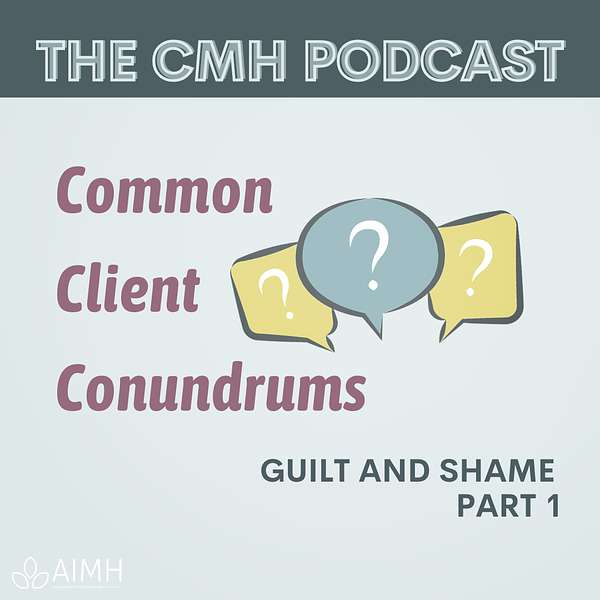
Conscious Mental Health
For Curious Clients and Conscious Clinicians: We’re shaking things up for season 3! Join co-hosts Laurel and Juniper as they step away from the therapy room and dive into candid conversations about the world around us. From weekly roundups to deep dives and everything in between, we’ll explore current topics, share our personal experiences, and offer insights through the lens of clinicians who aren’t afraid to get real.
Whether you’re here for education, connection, or just some good old-fashioned therapist banter, we’ve got you covered. Don’t forget to visit our website, leave us a message, and be sure to review, comment, follow, and subscribe to stay connected—both here and on YouTube
Conscious Mental Health
Common Client Conundrums: Guilt and Shame part 1
In this episode of Common Client Connudrums, join your host, Juniper Owens, director of the Academy of Integrative Mental Health, in a lively two-part discussion about guilt and shame. In Part One, the focus is on understanding shame. The episode delves into the definitions and distinctions between shame and guilt, highlighting their characteristics and origins. Juniper emphasizes the importance of cultural, religious, and psychological perspectives in comprehending the roots of these emotions. She also discusses the social roles of shame and guilt, emphasizing their impact on human interactions.
The episode offers practical strategies to help individuals deal with these emotions, including:
- The concept of self-forgiveness can contribute to improved mental health.
- Understanding the difference between proportionate and disproportionate guilt
- Cultivating self-compassion is essential to addressing guilt
- Recognizing the interconnected nature of human experiences and using restorative justice principles to make amends and seek healing.
References:
20 science-based recommendations for therapy with highly self-critical or shame-prone clients. (n.d.). ACT With Compassion. https://www.actwithcompassion.com/20_science_based_recommendations_for_therapy_with_highly_self_critical_or_shame_prone_clients
Budiarto, Y., & Helmi, A. F. (2021). Shame and self-esteem: A meta-analysis. Europe’s Journal of Psychology, 17(2), 131–145. https://doi.org/10.5964/ejop.2115
Cavalera, C., Andreani, P., Baumgartner, O., & Oasi, O. (2022). Do immature defense mechanisms mediate the relationship between shame, guilt, and psychopathological symptoms? Frontiers in Psychology, 13. https://doi.org/10.3389/fpsyg.2022.832237
Clark, A. (2012). Working with guilt and shame. Advances in Psychiatric Treatment, 18(2), 137–143. https://doi.org/10.1192/apt.bp.110.008326
Costa, R. M., & Brody, S. (2013). Immature psychological defense mechanisms are associated with greater personal importance of junk food, alcohol, and television. Psychiatry Research, 209(3), 535–539. https://doi.org/10.1016/j.psychres.2013.06.035
Forgiveness Definition | What is forgiveness. (n.d.). Greater Good. https://greatergood.berkeley.edu/topic/forgiveness/definition
Hall, J. H., & Fincham, F. D. (2005). Self–Forgiveness: The Stepchild of Forgiveness Research. Journal of Social and Clinical Psychology, 24(5), 621–637. https://doi.org/10.1521/jscp.2005.24.5.621
Kämmerer, A. (2019, October 9). The scientific underpinnings and impacts of shame. Scientific American. https://www.scientificamerican.com/article/the-scientific-underpinnings-and-impacts-of-shame/
Please share your voice with us! We would love to hear from you!
Record a voice message here.
Send us a comment here.
Apply to be a guest on this podcast here.
Would you like to share your work with the Conscious Mental Health Community ? We offer both paid and free sponsorship opportunities. To apply click here.